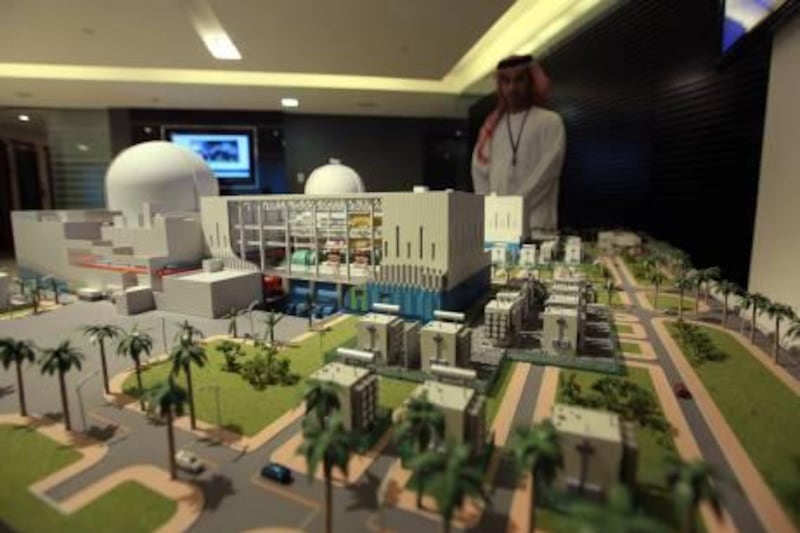ABU DHABI // The agency that oversees maritime safety is developing its own strategy for handling a nuclear power disaster, supplementing efforts by the country's nuclear regulator.
In the event of an emergency at a nuclear facility, the Critical National Infrastructure Authority (CNIA) should have a plan to protect the capital's waters, officials said at a stakeholder forum yesterday that outlined the authority's strategic plans until 2015.
The CNIA signed a memorandum of understanding with the Federal Authority for Nuclear Regulation (FANR) last month for co-operation in areas related to nuclear security.
The first two of the UAE's nuclear reactors are scheduled to come online by 2017.
Prevention and mitigation of nuclear accidents has been at the top of officials' minds amid the crisis surrounding Japan's Fukushima plant, crippled by an earthquake and tsunami last month. Poisonous water from the damaged reactors has since leaked into the sea.
Mohammed al Hamili, the UAE Minister of Energy, is attending the Summit on Safe and Innovative Use of Nuclear Power in Ukraine today, while FANR this month has asked Enec to explain what lessons it has learnt from Japan's disaster.
While FANR will act as a watchdog for the nuclear facilities and work to prevent a disaster from occurring, it is the CNIA's responsibility to address the possibility of an emergency and how to contain it, said Amna al Yammahi, the head of strategic planning and organisational development for the CNIA.
"This is a new issue to the country, and we want to develop a strategy to make sure that security personnel will be able to respond to incidents that could affect critical infrastructure," she said.
Academics and professionals have said the UAE was ill-prepared for man-made or natural disasters. To address this need, Khalifa University in the capital has recently launched a master's programme in disaster recovery, the first of its kind in the country.
The CNIA's move to assess large areas around the plants as well as the potential impact of a disaster on the community "would be a big step in greater resilience for the nation", said Greg Moser, the director of continuing education at Khalifa University's Institute for International and Civil Security, who spoke at yesterday's forum.
"If anything does occur, those mitigation and disaster plans and procedures could be vital in the recovery of the area and restoration to normal," he said.
The CNIA also revealed figures for the use of its emergency number, 996, which responds to marine emergencies. There were 1,845 emergency calls last year, of which 373 were for search and rescue.






